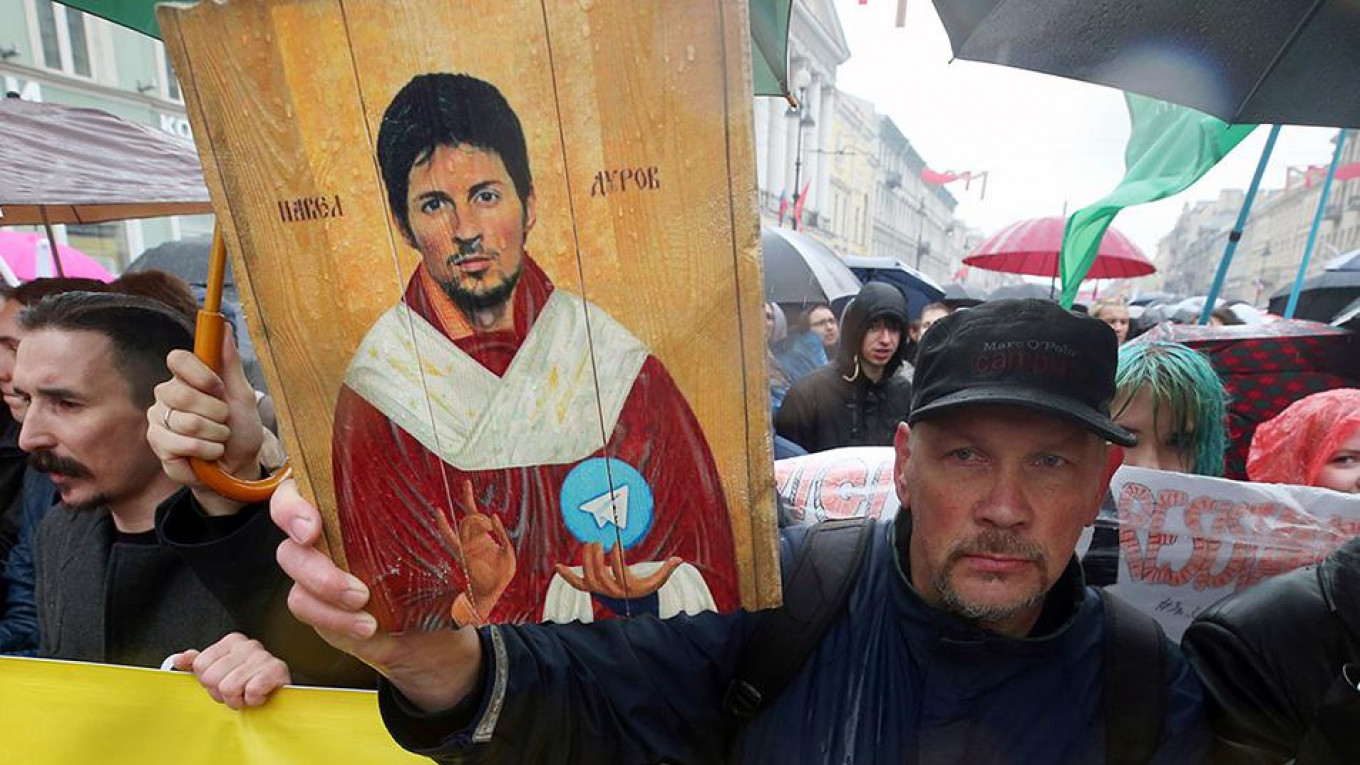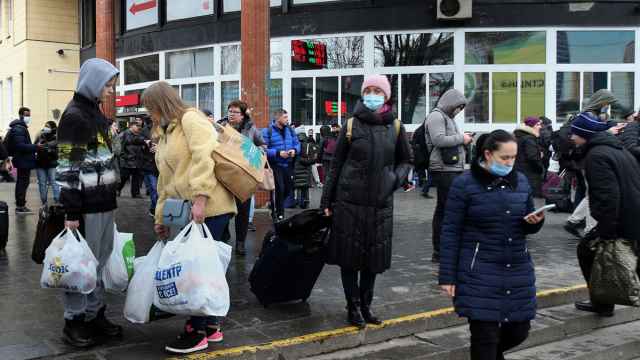Pavel Durov could have become a symbol of worldwide success, and his Telegram messenger app an example of a start-up from Russia that conquered the world.
But even if Durov had shown himself to be an ardent patriot, Russia's self-isolation has made that impossible. His example shows that the stream of “international" Russians will dry up and that entrepreneurs who have global ambitions will find it much more profitable to cut ties with Russia.
In the conflict over the implementation of the so-called anti-terrorist Yarovaya laws and encryption keys, Durov was unexpectedly tough, if not outright reckless. There was no way for the Russian authorities to save face publicly.
This was particularly annoying given that Facebook founder Mark Zuckerberg spent two days explaining himself to U.S. representatives in Congress, answering questions from older people whose understanding of how the internet works might seem naïve to their children and grandchildren.
But Durov's refusal to cave in to the demand wasn’t, I suspect, primarily a fight for freedom. Or because Telegram markets itself as a system that can’t be hacked — WhatsApp is protected in a similar way and the super-secret Signal is even more hack-resistant. The truth is that Durov didn’t have much choice.
Imagine the headlines in The New York Times, Recode, or Wired: “Durov hands his encryption keys to the Russian secret services.” Or, better yet: “Putin made Telegram his pocket messenger.”
What would have been inconsequential five years ago is fatal today. The entrepreneur Durov collaborating with the Russian secret services — something which ten years ago gave the anti-virus company Kaspersky Lab an image boost, would be marketing suicide today, at least in the West. Telegram would have remained competitive only in countries that don’t care about the conflict between Russia and the West. And there aren’t many of those.
A tech business limited to one specific country and one narrow market is not going to provoke the interest of serious investors. Venture capitalists want to know how an entrepreneur plans to scale up their product and sell to the largest target group possible — preferably a market the size of planet Earth, or, if not the entire planet, at least a billion people.
If you want to be successful, you have to be global. Everything else is just a lifestyle business. It’s clear that Durov has global ambitions, as shown by the scale of his recent ICO of $1.7 billion and the description of his TON project: to provide millions of people with easy access to crypto-currency. He already had a lifestyle business — the social media platform Vkontakte. In this situation, it is better for Durov to lose 50 percent of 10 million users in Russia than to lose the entire world with its potential billions.
This is bad news for young entrepreneurs from Russia who dream of conquering the world. If you are talented enough to invent something truly grand and universal, chances are that you’ll have to emigrate. Given the domestic situation in Russia today, you can’t scale up your product without going to where the global money is.
Each individual can solve the problem by leaving, one way or the other, but there is no clear solution for the country as a whole. There are two ways to develop private tech businesses: either integrate with the world or set up secret labs or prison camp shops: places where people who aren’t free but can’t escape sit and work for an idea. I don’t think that the latter “unique commercial offer” would seriously interest young and talented people.
Russia will just reinforce her status as a technological hinterland, and we’ll continue to be amazed at talented techies who speak Russian with an accent creating multi-billion dollar start-ups in Silicon Valley and not in their parents’ homeland.
Elizaveta Osetinskaya is the founder of The Bell news start-up. A Russian-language version of this article was first published by Vedomosti. The views and opinions expressed in opinion pieces do not necessarily reflect the position of The Moscow Times.
A Message from The Moscow Times:
Dear readers,
We are facing unprecedented challenges. Russia's Prosecutor General's Office has designated The Moscow Times as an "undesirable" organization, criminalizing our work and putting our staff at risk of prosecution. This follows our earlier unjust labeling as a "foreign agent."
These actions are direct attempts to silence independent journalism in Russia. The authorities claim our work "discredits the decisions of the Russian leadership." We see things differently: we strive to provide accurate, unbiased reporting on Russia.
We, the journalists of The Moscow Times, refuse to be silenced. But to continue our work, we need your help.
Your support, no matter how small, makes a world of difference. If you can, please support us monthly starting from just $2. It's quick to set up, and every contribution makes a significant impact.
By supporting The Moscow Times, you're defending open, independent journalism in the face of repression. Thank you for standing with us.
Remind me later.








